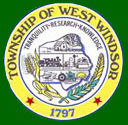By Lea Kahn, Staff Writer
WEST WINDSOR — Township Council introduced the proposed $38.9 million municipal budget for 2016, prepared by Mayor Shing-Fu Hsueh, on Monday night, but not without some criticism from a handful of residents – including former Township Council member Bryan Maher.
The budget, which will be subject to a public hearing and final action at Township Council’s April 18 meeting, carries a tentative municipal tax rate hike of 1.5 cents per $100 of assessed value — the first increase since 2013. The current municipal tax rate is 38 cents.
The mayor’s proposed budget of $38.9 million is $898,700 more than the 2015 budget. An increase of $219,153 in the salaries and wages portion of the budget accounts for part of the increase.
The “other expenses” portion of the budget increased by $679,547. It includes increases of $307,775 for group insurance, $187,000 for affordable housing litigation, $173,061 for pension costs, and $18,955 for workers compensation and liability insurance.
Most of the revenue to support the budget comes from property taxes. The 2016 budget calls for $23.6 million to be raised from property taxes, which is $906,751 more than in 2015.
In addition to property taxes, other sources of revenue include $2.1 million in state aid, $5.2 million in miscellaneous revenue and $3.2 million in sewerage service charges.
The budget also includes $4.6 million from the fund balance, or surplus account — and that’s what drew much of the criticism from some township residents, including Mr. Maher, the former Township Council member.
Mr. Maher, whose term expired in December, told Township Council to consider this “the initial shot across the bow.” He was critical of the $900,000 increase in municipal property taxes, noting that the tax rate had remained flat — with no increase — for the past two years.
Mr. Maher suggested reducing the proposed $900,000 municipal property tax increase by using $300,000 more from the fund balance, or budget surplus, and also anticipating $1.1 million in construction fees and permits — up from the proposed $975,000.
Mayor Hsueh proposed using $4.6 million of the $6.3 million fund balance, or budget surplus, as a source of revenue, but Mr. Maher suggested applying an additional $300,000 — or $4.9 million — to reduce the property tax increase.
But in his budget message, Mayor Hsueh wrote that he is opposed to continuing to draw down the fund balance because it would affect the township’s bond rating. He wants to keep the township’s AAA bond rating, which affects the cost of borrowing money when it issues bonds to pay for projects.
Mr. Maher, however, said that the difference between a bond rating of AAA and AA would be minimal — about $1 in debt service on $4 million in bonds. A 1.5-cent tax rate increase would hike the municipal property tax by about $120, he said.
“You are proposing a $120 increase to save maybe $1. That is the most fiscally stupid thing I have come across. I would implore you to do your work with common sense. Are you really going to tax us $120 to save maybe $1,” Mr. Maher said.
Mr. Maher said that raising property taxes lowers the value of the homes in West Windsor. Many residents sell their homes as soon as their children complete high school because of property taxes, he said, adding that it disrupts families. The children would like to return to their childhood home, but cannot, he said.
“If you need help, I would be happy to do it. I am only a phone call away,” Mr. Maher said.
Several other residents also decried the increase in property taxes.
Marshall Lerner suggested saving money by outsourcing some positions, just as the West Windsor-Plainsboro Regional School District has done. He also suggested placing police officers on selected township streets to catch violators, which would generate more revenue.
Township Council President Linda Geevers thanked the residents for their comments, noting that the governing body can still make changes to the budget. Although the budget has been introduced, it is still “a work in progress,” she said.

